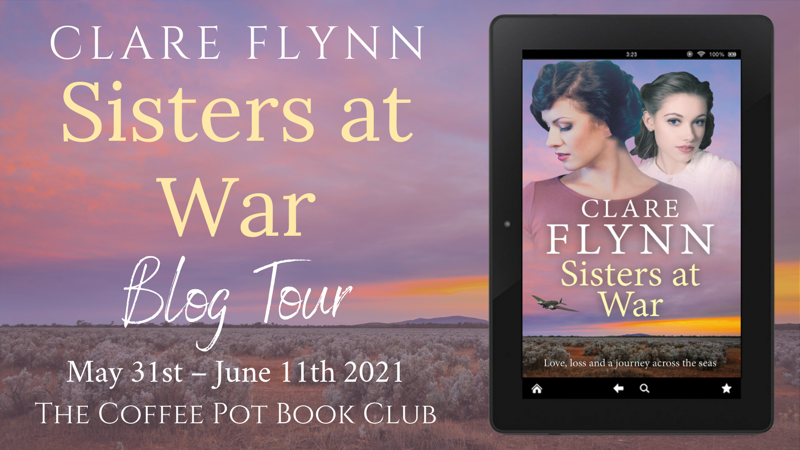
1940 Liverpool. The pressures of war threaten to tear apart two sisters traumatised by their father’s murder of their mother.
With her new husband, Will, a merchant seaman, deployed on dangerous Atlantic convoy missions, Hannah needs her younger sister Judith more than ever. But when Mussolini declares war on Britain, Judith’s Italian sweetheart, Paolo is imprisoned as an enemy alien, and Judith’s loyalties are divided.
Each sister wants only to be with the man she loves but, as the war progresses, tensions between them boil over, and they face an impossible decision.
A heart-wrenching page-turner about the everyday bravery of ordinary people during wartime. From heavily blitzed Liverpool to the terrors of the North Atlantic and the scorched plains of Australia, Sisters at War will bring tears to your eyes and joy to your heart.
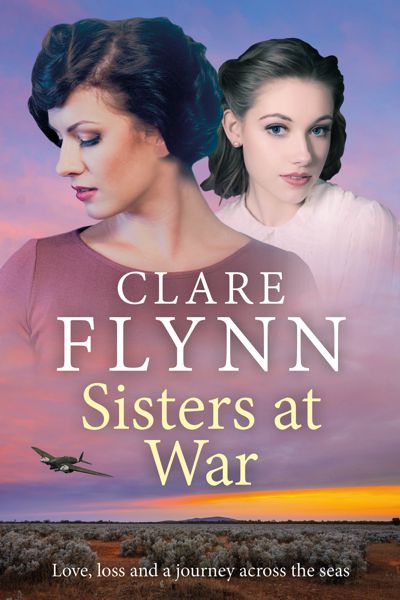
Historical era behind Sisters at War
Thanks for inviting me onto your blog, Mercedes. You asked me to talk about the historical era Sisters at War is set in and why I chose to write about this period. When I started to write historical fiction, I was clear about only one thing – I wasn’t going to write about the Second World War! I was convinced I wasn’t interested in the period – in spite of (or perhaps because of) a diet of WW2 black and white movies while growing up, as well as a dad who served in the RAF and two brothers obsessed with Airfix models and war stories.
The irony is that now, with thirteen novels under my belt, only four are set outside WW2, with all the others set either during the war or heavily influenced by its after-effects.
My second novel, Kurinji Flowers, although set before and after the war managed to duck the events itself – other than indirectly – by jumping through time until the war was over. But when I came to write The Chalky Sea my interest was kindled by discovering how my own town had been caught up in the war in ways I’d known nothing about. That was enough to get me hooked!
As to Sisters at War, while I wrote it as a standalone, it follows on from Storms Gather Between Us which ended just as war was declared in September 1939. Naturally, readers were keen to know what happened to the central characters during the war – and I must admit I wanted to know myself.
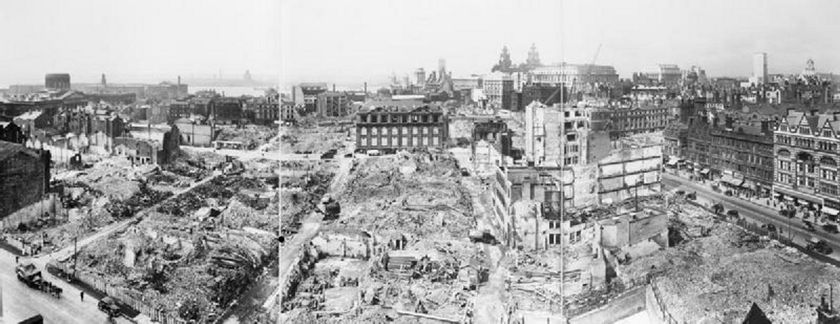
But there are other factors. I was born in Liverpool, the city where the book is set, and I still have a sentimental attachment to it. I drew on my childhood memories of the area and soon got caught up in the fascination of the research needed to write the book. That covered the role and conditions of the merchant navy during the Battle of the Atlantic, when more merchant sailors were killed, as a proportion of numbers serving, than in any of the individual British armed forces. Every Atlantic crossing was like a game of Russian roulette, with convoys carrying essential supplies from the Americas to the UK through the stranglehold of Hitler’s U-boats and the Luftwaffe over the Western approaches to Britain. I come from a family with many merchant seamen, including my grandfather, so naturally this was of great interest to me. As I got deeper into my reading and visited the Museum of Liverpool and the Liverpool Maritime Museum I was hooked.
I’m a huge Italophile, having lived in Milan for three years in the 1990s. I had an Italian secondary character in Storms Gather Between Us so, when my research revealed the plight of Italians living in Britain once Mussolini joined the war, I had to bring Paolo Tornabene back. I needed to write about the true stories of the sinking of the RMT Arandora Star, loaded with ‘enemy aliens’ and bound for Canada, and the horrific treatment of civilian prisoners on the RMT Dunera bound for Australia. While the fate of ‘The Dunera Boys’ is well known in Australia, the story was brushed under the carpet in the UK and was largely forgotten after the war. I was shocked to learn what had happened to those men – many of whom had survived the Sinking of The Arandora Star only days earlier. To be rescued from the cold waters of the North Atlantic only to be put straight on another overcrowded ship, was cruel indeed.
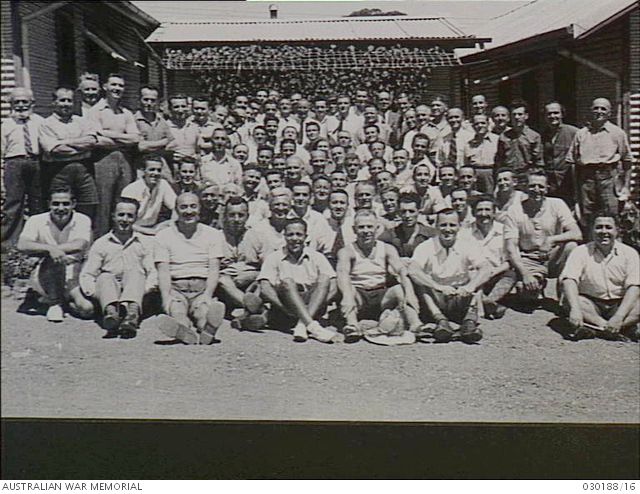
I lived in Australia for six months, and have friends and family there, although I have never visited the area in Victoria where the civilian internment camp featured in Sisters at War was sited. Ending the book in Australia closed a circle begun in A Greater World – although I won’t rule out the possibility of returning there in a fourth novel in the series.
So, why was I reluctant to write about World War 2 for so long? I suspect it’s because I shied away from the idea of writing about military action. But once I tried it, I found I loved it and am no longer reluctant. But, of course, the war is about much more than individual battles and military engagement. There was plenty of drama on the Home Front – Liverpool experienced being heavily blitzed because of the critical importance of the port of Liverpool. Almost nine hundred tons of bombs fell on the city. The stories of ordinary people fascinate me: how they are touched by big events but in a myriad of different ways. The lives of Hannah and her sister, Judith, are changed their lives radically by the war – as indeed are the lives of Will and Paolo, the two men the sisters love, and the friends, Sam and Nance, who they lodge with.
What is fantastic to me about being an author – particularly of historical fiction – is you never know where your curiosity will lead you. Thanks for inviting me to talk about Sisters at War.
Universal Link: https://books2read.com/sistersatwar
Amazon UK: https://amazon.co.uk/dp/B08Z473XG2
Amazon US: https://www.amazon.com/Sisters-War-wartime-voyage-across-ebook/dp/B08Z473XG2/
Amazon CA: https://www.amazon.ca/Sisters-War-wartime-voyage-across-ebook/dp/B08Z473XG2
Amazon AU: https://www.amazon.com.au/Sisters-War-wartime-voyage-across-ebook/dp/B08Z473XG2/
Kobo: https://www.kobo.com/us/en/ebook/sisters-at-war-1
Meet Clare Flynn
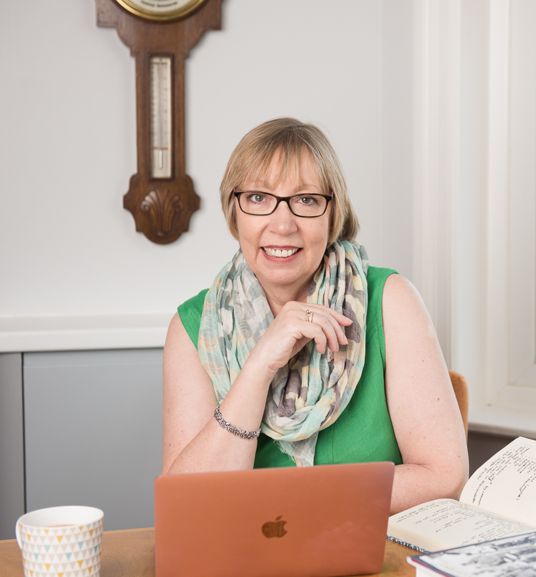
Clare Flynn is the author of thirteen historical novels and a collection of short stories. A former International Marketing Director and strategic management consultant, she is now a full-time writer.
Having lived and worked in London, Paris, Brussels, Milan and Sydney, home is now on the coast, in Sussex, England, where she can watch the sea from her windows. An avid traveler, her books are often set in exotic locations.
Clare is a Fellow of the Royal Society of Arts, a member of The Society of Authors, ALLi, and the Romantic Novelists Association. When not writing, she loves to read, quilt, paint and play the piano.
Connect with Clare
Website: https://clareflynn.co.uk/
Twitter: https://twitter.com/clarefly
Facebook: https://www.facebook.com/authorclareflynn
Amazon Author Page: http://www.amazon.com/Clare-Flynn/e/B008O4T2LC/
Goodreads: https://www.goodreads.com/author/show/6486156.Clare_Flynn
Instagram https://instagram.com/clarefly
LinkedIn: https://www.linkedin.com/in/clareflynn/
Pinterest: https://www.pinterest.co.uk/clarefly/
Book Bub: https://www.bookbub.com/authors/clare-flynn